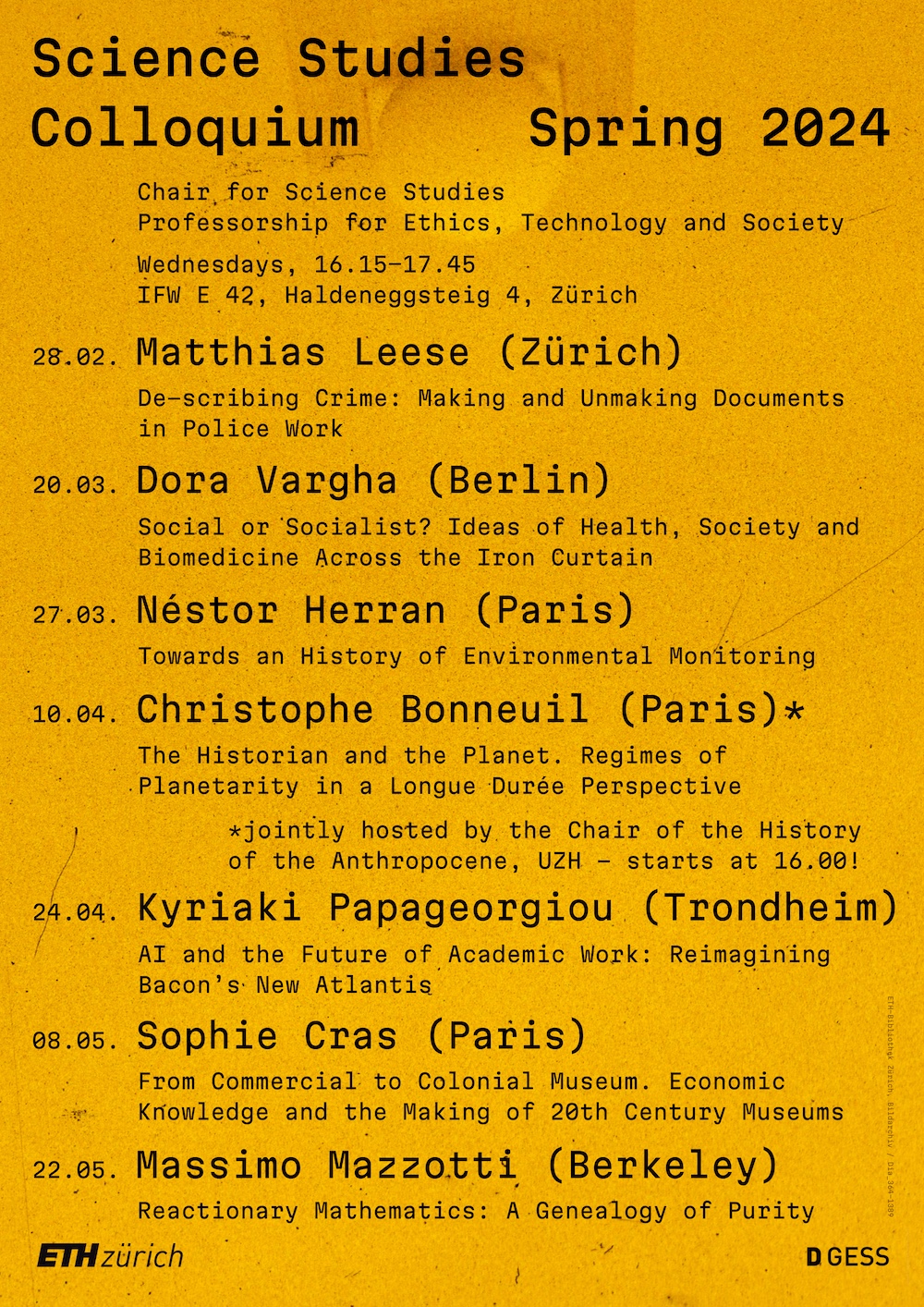Christophe Bonneuil at the Science Studies Colloquium
On Wednesday, April 10, Christophe Bonneuil (Paris) will give the talk "The Historian and the Planet. Regimes of Planetarity in a Longue Durée Perspective" at the Science Studies Colloquium. The event will be jointly hosted by the UZH Chair of the History of the Anthropocene (Debjani Bhattacharyya).
Christophe Bonneuil has shared external pagethis article and the following summary of his talk:
Have we really just met the planet? The humanities and social sciences have tended to embrace ecological and climate issues, the Anthropocene and the Earth system sciences, by dramatising the novelty of environmental knowledge and reflexes about what 'we' are doing to the planet. More than a simple analytical contrast between global and planetary thinking, key scholars have framed this polarity in a progressive, time-oriented narrative of a recent turn from an obscure and narrow 'before' to a more environmentally conscious 'now'.
But this "once was blind but now can see" thesis does not hold, as many recent works in history of science and technology as well as in environmental history teach us. Time has come to craft a new conceptual framework, that enables to investigate both the age, the transformations and the historicity of the planetary environmental reflexivities at different times over the last 500 years.
The talk will elaborate the concept of regimes of planetarity as a way of historicizing the way in which societies have organized and thought about their relationship to the planet, its beings and its functioning, at the crossroads of material dynamics (world-ecologies), knowledge dynamics (environmental reflexivities) and (geo)political arrangements (geopowers). Finally, I will put these conceptual frameworks to the test by exploring the regime of planetarity as it manifests itself at the turn of the 19th century and the 20th century, i.e. as an imperial regime.
Find more information on the colloquium here and on the poster below.

